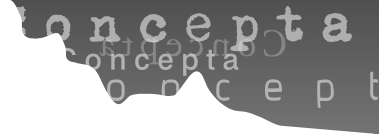Conference 'The First World War and the End of Neutrality'
7 March 2009, The Hague (The Netherlands)
Call for Papers
In his seminal "The Decline of Neutrality", first published in 1950, Nils Ørvik stated that the First World War spelled the beginning of the end for neutrality. During this Great War, both belligerent blocs expected the neutrals to realign their neutrality in their favour. Some neutrals, such as the Scandinavian countries and Switzerland, engaged in a daring balancing act between the economic demands placed on them by the Germans and British. Others, such as Belgium, could not maintain their neutrality (or even their sovereignty) in the face of military demands placed on them by the Central Powers or the Allies. Moreover, in a "total war" cast in terms of a battle between good and evil, traditional neutral morality quickly evaporated. The moral high ground was no longer theirs; instead, they were increasingly seen as cowards, war-profiteers or enemy collaborators. Finally, the legal framework that had been established during the nineteenth century to safeguard neutral rights against belligerent action in war was slowly, but decisively, demolished in wartime.
To date Ørviks views are still prevalent in international literature on the First World War. The small neutrals' role in international events is deemed to be minimal. Their war history is most often reduced as one of steadily encroaching demands on their sovereignty, which they were powerless to resist. Only the neutral United States was able to stand up to belligerents, but the distance between her and warring Europe, her size and might, and her disposition towards the Allied case made her, according to most historians of the First World War, an exempt case.
In recent historiography neutrality in Europe and the United States moved between the often frightening possibility of an involuntary violation of neutrality (viz. Belgium and Greece) and the prospect of a voluntary abandonment of neutrality when it was deemed incompatible with the national interest (viz. the United States, Italy and Romania). Moreover, as traditional legal and moral conceptions of neutrality lost their meaning, others supplanted them.
The question of the decline or transformation of neutrality will form the subject of a conference to be held at The Hague, March 7th, 2009.
The conference will be organized by M. de Keizer and I. Tames (Netherlands Institute for War Documentation), J.P. den Hertog (Leiden University) and S. Kruizinga (The University of Amsterdam) in cooperation with the Royal Dutch Historical Society (KNHG).
During the conference, we will focus on the question of how both the concept and the practice of neutrality were changed by the First World War. In order to do so, will focus on studying the following themes, in a comparative fashion:
-In what way and in what direction did neutrality change during the First World War?
-How did changes in the concept of neutrality impact on a "neutral" society?
-How and why did these changing concepts influence "neutral" countries in the economic, military, political and cultural sphere?
We invite scholars to contribute to this conference. Please send a one page proposal, detailing the outline of an article which deals with these themes, plus a short c.v. of the author (or authors) to the organizers before May 31st, 2008 to the following address: [email protected] or [email protected].
The organizing committee will select the most promising papers on their scholarly merits. The selected authors will be invited to give a lecture at The Hague. Naturally, we invite all those interested in this subject to attend and participate in discussions as well.
A collection of the papers will be published in the autumn of 2009 by the Netherlands Institute for War Documentation (NIOD). Details of the conference will be published on the website of the NIOD by January 2008: www.niod.nl/conferences <http://www.niod.nl/conferences>

